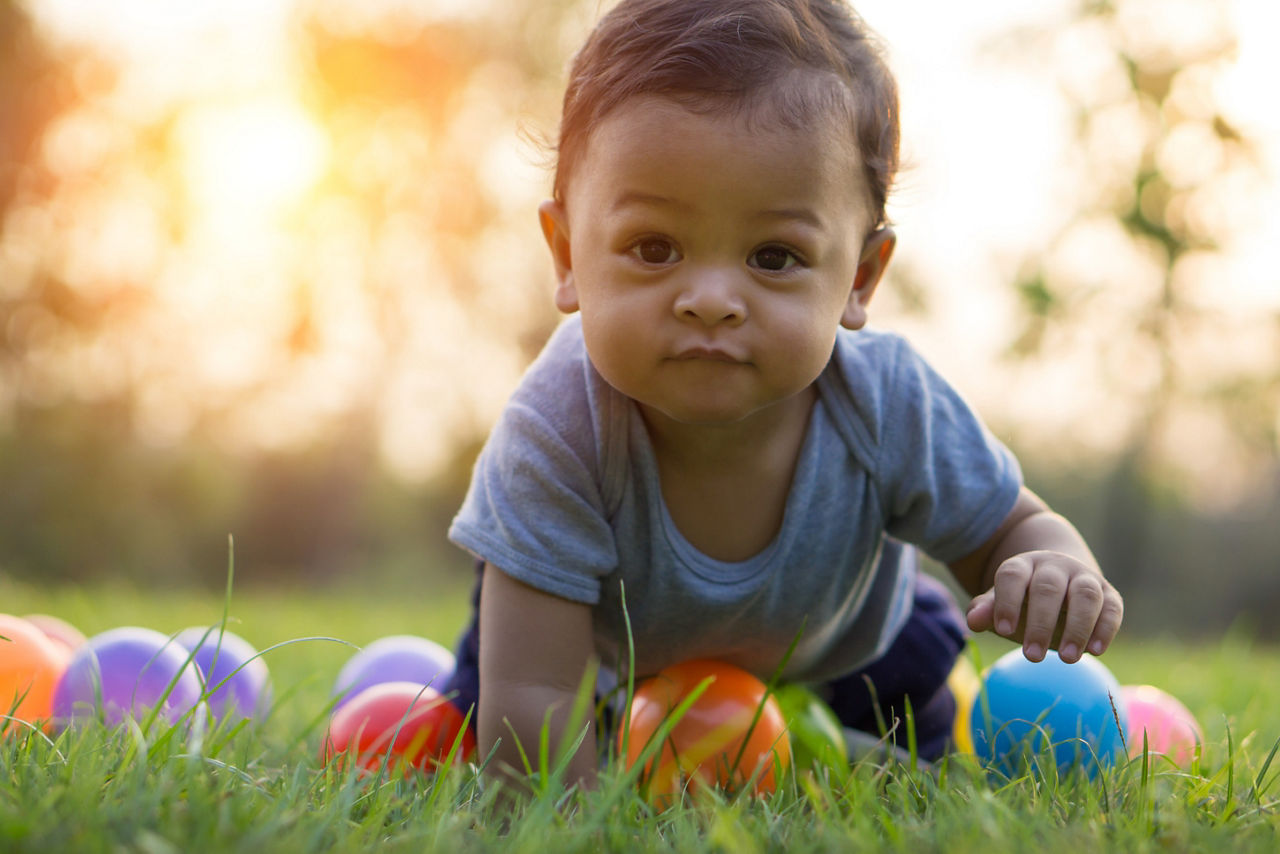Breastmilk is the best for babies. The World Health Organisation recommends exclusive breastfeeding for the first six months of life. Unnecessary introduction of bottle feeding or other food and drinks will have a negative impact on breastfeeding. After six months of age, infants should receive age-appropriate foods while breastfeeding continues for up to two years of age or beyond. Consult your doctor before deciding to use infant formula or if you have difficulty breastfeeding.
Test your knowledge on viruses, bacteria and microscopic fungi your baby may come into contact with. Which is harmful, which is not?
1. Are all bacteria dangerous for your baby?
No
In water, air, soil - bacteria are everywhere. Although some are pathogenic and can cause harm to the body, they are often harmless and can even be useful... Their presence is complete normal, and we even need them!
Reference: https://badgut.org/information-centre/a-z-digestive-topics/babies-and-bateria
2. Are viruses transmitted through the air we breathe?
Yes and No
When your baby is sick, they sneeze, cough and sputter out some saliva that contains small virus-infected airborne particles. Especialy in an enclosed room: his bedroom, a waiting room... Most viruses can't survive in the open air for long, but some may be more resistant than others!
Reference: https://www.sciencedaily.com/releases/2007/05/070515100204.htm
3. Are antibiotics effective against viruses?
No
If your baby is sick, be aware that antibiotics are only effective in fighting bacterial infections. Antibiotics are not always the solution, they will hav eno effect against viral infections (bronchitis, flu, etc.). Please consult your doctor and seek advice if you're worried.
Reference: https://www.cdc.gov/patientsafety/features/be-antibiotics-aware.html
4. I'm a microscopic fungus. Am I a microbe?
Yes
Microscopic fungi are living organisms that can cause fungal infections and can appear on your child's body - on the skin and mucuous membranes. They usually appear as small red patches. Warm, moist environments such as small folds of skin, execerbated by the weather in Singapore, can promote the development of fungal infections. It's therefore important to dry your child well after bathing.
Reference: https://microbiologysociety.org/why-microbiology-matters/what-is-microbiology/fungi.html
5. Can microbes be present on toys?
Yes
Toys, whether made of plastic, wood or fabric, can carry a number of bacteria. So it's important to ensure they're cleaned regularly either in the washing machine or in hot soapy water and they don't come into too much contact with your baby's mouth.
Reference: https://microbiologysociety.org/why-microbiology-matters/what-is-microbiology/microbes-and-the-human-body/routes-of-transmission.html
6. Does the cold kill germs?
Yes and No
Unfortunately, not always. Microbes are living organisms that can be very resistant and grow between 10°C and 50°C. Their development below 10°C is simply slowed down... Remember to wash your and your baby's hands carefully to avoid the spread of microbes.
Reference: https://www.insider.com/does-cold-air-kill-germs-and-viruses
7. Does sneezing help keep germs away?
Yes
Don't hold your baby's sneeze in because some pathogens can be exprelled from the body. Remember to wash your baby's hands to avoid any contagion.
Reference: https://www.sciencedaily.com/releases/2016/11/161121130634.htm
8. Do thousands of bacteria live in your baby's gut?
Yes
Good bacteria (called 'normal microbiota') live in your baby's digestive system and are beneficial to their wellbeing. How? Good bacteria help facilitate digestion e.g. by ingesting fiber that is not absorbed by the body or even by producing nutrients and vitamins that your baby needs!
Reference: https://gutmicrobiotaforhealth.com/infographic-isapp-explains-gut-microbiota-role-health/

Connect with our team of experts
We provide advice and support for you on your parenthood journey



